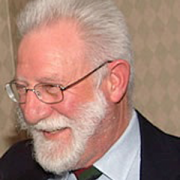I suppose that my interest in cultural psychiatry evolved from my childhood experience, growing up in Toronto, Canada. It was clear to me, even as a child, that ethnic and religious prejudice was openly expressed and that I was a member of a prejudiced-against minority group, even though I didn’t look, talk or behave in any way differently from the “ English Protestant “ majority.
When I started medical school at the Univ of Toronto in the mid-1950s, there was still a quota for Jewish students. In my pre-medical years, I was fascinated by the account of the lives and beliefs of the Inuit in northern Canada, described by my anthropology professor who was doing research then on witch fright among the Inuviik Inuit. I was also influenced by what my psychoanalyst uncle and pediatrician cousin told me about their fields. And I listened with amazement to what my photographer cousin told me about her years living in New York in the 1930s, where she became friendly with Paul Robeson, Duke Ellington and Cab Calloway and described what life was like in Harlem.
After medical school in Toronto and internship in New York, I spent a year in two villages in northern Laos, heading an international team of medical personnel. Then, in 1961, I started my training in psychiatry at McGill University in Montreal.
A few years earlier, Erik Wittkower had started the Section of Transcultural Studies at McGill. Wittkower became my mentor, along with the anthropologist Norman Chance, who had worked extensively in the Arctic and had started the Center for the Anthropology of Development at McGill. I joined Chance’s research group, studying the impact of rapid culture change on the Cree Indians of the James Bay region of the sub-Arctic.
After a fellowship year in Paris, I spent two years as the only psychiatrist in Liberia, where my wife and I ran the only psychiatric hospital and outpatient clinics in the country. We returned to Montreal in 1966, where I had faculty appointments at McGill in both psychiatry and anthropology, and was also part of the Dept of Psychiatry at the francophone University of Montreal. And I undertook my own psychoanalysis; with a francophone psychologist/psychoanalyst.
During the 1960s there was increasing strain between anglophone and francophone communities in Montreal, to the extent that my wife and I decided to leave Montreal and go to the United States.
I accepted positions in the Anthropology Dept at the University of Connecticut, where Norman Chance had become Dept chair, and at the Dept of Psychiatry in the newly-established medical school. This was a period of great productivity for me in cultural psychiatry, and in the area of psychiatry and international relations; working closely with colleagues in anthropology, psychology, political science and psychiatry.
During my years at the University of Connecticut, from 1969 to 1982, I spent a sabbatical year at the new medical school in Christchurch, New Zealand, where I focused my research interest on culture change among the Maori. The year my family and I spent in New Zealand was the start of a connection with the medical school in Christchurch, and with New Zealand more generally, that has continued ever since.
In 1982 I joined the faculty of the Dept of Psychiatry and Human Behavior at Brown University in Providence, Rhode Island, where I have continued to be a faculty member ever since.
Together with Edward Foulks and John Speigel, I was involved in the establishment of the Society for the Study of Psychiatry and Culture, which had the first of what is now over twenty-five annual meetings, in 1979.
In 1968 I was invited to participate in the unique learning experience of being a member of the Committee on International Relations of the Group for the Advancement of Psychiatry; a study group of eight nationally-recognized scholars in the field, that met for three days twice each year, to formulate reports on current issues relevant to psychiatry. I subsequently became chair of the Committee during a period that led to the publication of a monograph on “Psychological Aspects of the Middle East Conflict”. In 1983 I participated in the establishment of the Committee on Cultural Psychiatry of the Group for the Advancement of Psychiatry, that produced a monograph on suicide, race and ethnicity in the US population, another on alcohol use and alcoholism in those same US population groups, and in 2001, a casebook on “Cultural Assessment in Clinical Psychiatry”.
In 2002 I became co-chair of the WPA-Transcultural Psychiatry Section, under the chairmanship of Goffredo Bartocci. In Sep 2005, I was elected as chair of the WPA-TP Section, during the World Congress of Psychiatry in Cairo.
Together with Fumitaka Noda, the TPS co-chair, Joan Obiols, TPS Secretary, and the other members of the new TPS Committee, I will try to live up to the performance standards set by our predecessors on the TPS Committee.
There are a number of new ideas and initiatives for the Section that I outlined at the Business Meeting in Sep, and have since then been refining, for circulation to the TPS Committee. As these ideas progress toward Committee-approved initiatives and policy proposals, we will inform all TPS members.
On behalf of all the members of the TPS Committee, I encourage your comments and suggestions and I encourage you to actively participate in the activities of the Section in 2006 and beyond.
April 5, 2006

